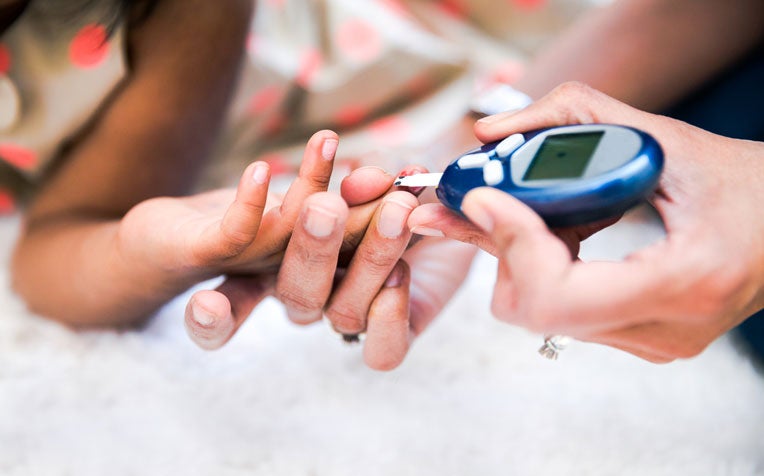
Prediabetes symptoms include blurred vision, excessive thirst and weight loss.
What is prediabetes?
Healthcare professionals sometimes refer to prediabetes as impaired glucose tolerance (IGT) or impaired fasting glucose (IFG) or both, depending on what test was used for detection and diagnosis.
“Before people develop type 2 diabetes, almost all pass through the stage of prediabetes where the blood glucose levels are higher than normal but not high enough to be considered as frank or overt diabetes,” says Dr Goh Su Yen, Head and Senior Consultant, Department of Endocrinology, Singapore General Hospital (SGH), a member of the SingHealth group.
Importantly, having prediabetes means that you are likely to progress on to diabetes in the near future. You can however take steps to reduce these risks.
Are there any symptoms of prediabetes?
There are no clear symptoms of prediabetes. The only reliable method of diagnosis is by having blood tests done.
Some people may have a few of the symptoms of diabetes such as:
- Excessive thirst and urination
- Fatigue
- Weight loss
- Blurred vision
Diagnosing prediabetes: How do I find out I have it?
| Normal | Prediabetes | Diabetes | |
|---|---|---|---|
| Fasting glucose | < 6.1 mmol/L | 6.1-6.9 mmol/L | >7.0 mmol/L |
| 2 hour plasma glucose level after oral glucose tolerance test (OGTT)* | < 7.8 mmol/L | 7.8-11.0 mmol/L | >11.1mmol/L |
* OGTT (oral glucose tolerance test): 75g of glucose, with blood glucose levels checked (1) after fasting, before the ingestion of glucose and (2) two hours after the ingestion of glucose
What can I do to help myself when I have prediabetes?
Lifestyle changes with modest weight loss (5-10% of body weight) and moderate-intensity physical activity (~30 minutes daily) are good recommendations to start with.
How to exercise
A reasonable target is 150 minutes per week of moderate-intensity exercise such as brisk walking and strength training.
You should start any new activity slowly and increase intensity and duration gradually as you become accustomed to the routine.
Other lifestyle tips
Eat healthily and sensibly, avoid fad diets, and get adequate sleep and rest.
It has been shown unequivocally that structured programmes and intensive lifestyle modification programmes can help people learn proper techniques, establish goals, stay motivated, and can lead to a sustained reduction in the conversion from prediabetes to overt type 2 diabetes.
Do you have prediabetes? Learn how the Pre-DICTED Programme can help you.
Ref: O17
Contributed by
Related Articles
Conditions & Treatments
Public Events
Get the Health Buddy App
© 2025 SingHealth Group. All Rights Reserved.


















 Get it on Google Play
Get it on Google Play